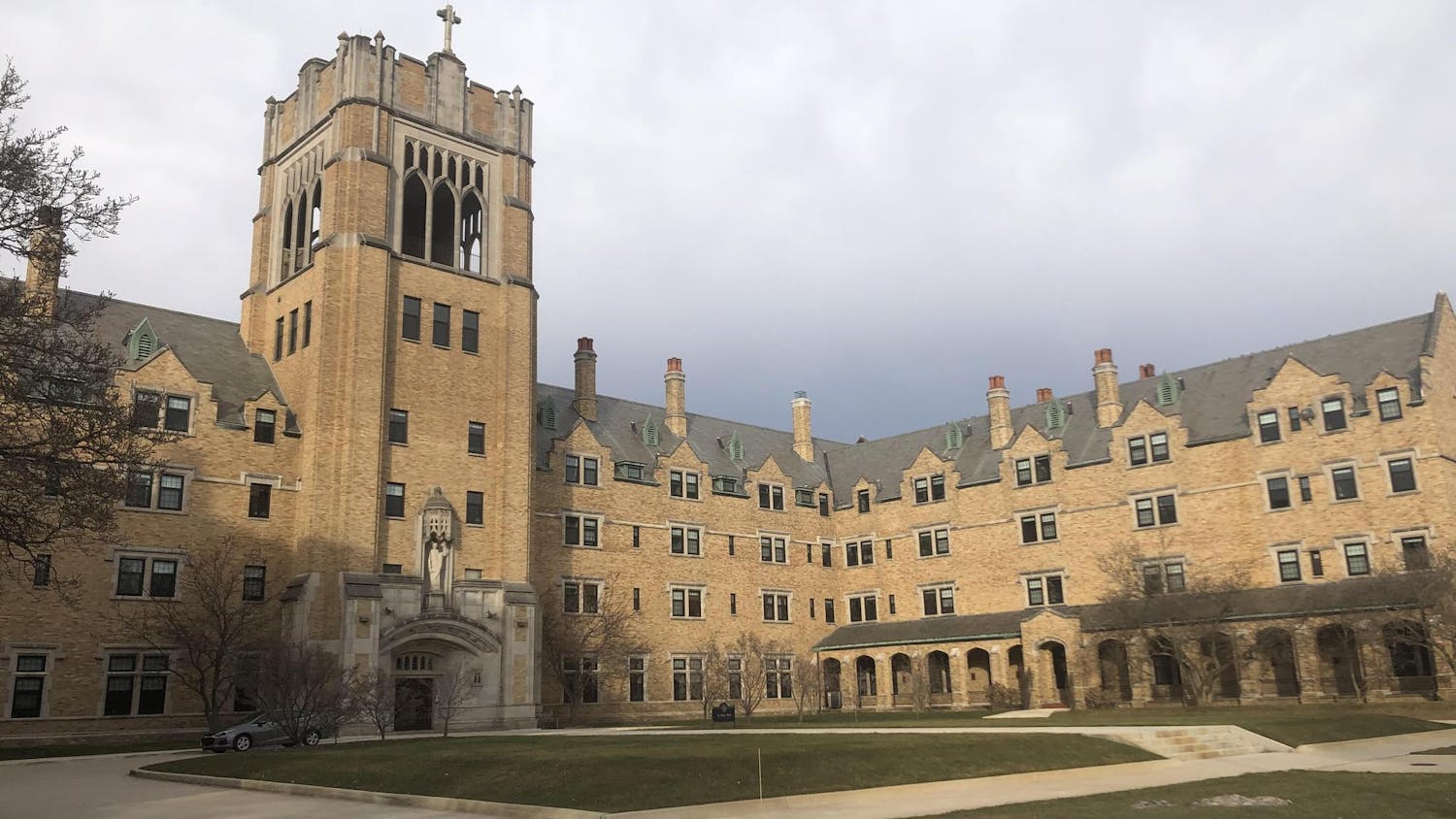For the first time in a century, antitrust laws are at “the center of the public consciousness,” assistant attorney general for the antitrust division of the Department of Justice Jonathan Kanter said during a conversation with law professor Roger Alford Tuesday afternoon in the Eck Hall of Law.
Kanter argued the focus on these laws, which seek to limit monopolies and foster competition, comes from a dissatisfaction with the state of the American economy. “[It’s] a sign that many people in the country feel like the American Dream is no longer available,” he said.
Kanter was confirmed by the Senate in Nov. 2021 and was appointed to his position by President Biden. He noted the efforts to more consistently enforce century-old antitrust laws, such as the Sherman and Clayton Acts, began under the Trump administration. Although he argued the current administration has been the most aggressive in its enforcement of the laws in recent history.
Kanter stressed the desire to better enforce existing antitrust laws has been authentically bipartisan in recent years, despite Democrats tending to be more critical of large corporations than Republicans. Both parties recognize the risks posed by monopolies, he argued, with Republicans focusing more on the limits corporations put on free speech.
“Concentration of corporate power and concentration of political power both create the same kinds of risks to our liberty, to our ability to have control over our own lives and destinies,” he said.
The wide range of people affected by monopolies has also fostered interest in antitrust laws, he said. “Whether it’s a farmer in North America, an entrepreneur in Northern California or a tech startup in Austin, Texas, they all see the same thing,” Kanter said. “They see the bottlenecks of the economy and see the small number of companies who have outsized influence and outsized power.”
Kanter explained the antitrust division is focusing on blocking mergers of companies that stifle competition and prevent people from serving on the boards of two competing companies at the same time. He noted the success the Department of Justice has had in forcing 20 people to resign from board positions for this reason.
Another key part of the Department of Justice’s antitrust initiative is to clearly establish new norms in the business world. “Antitrust violations should not be the cost of doing business,” he said. “We're trying to explain that companies and individuals need to address these issues before engaging in a violation, not after.”
Kanter said the Department of Justice must be sure to impartially enforce the antitrust laws that Congress passes, being sure to neither ignore them nor enforce them haphazardly. “We need to be careful not to overthrow the will of Congress by using our own subjective views on what the law should be and substituting that for what the law says,” Kanter said.
One area in which the department is particularly focusing its attention is the artificial intelligence industry. Kanter noted the importance of preventing emerging markets from being dominated by one or two firms, as it often occurs. “If we fail to enforce the antitrust laws in real-time, we start from behind with respect to competitive conditions as we start to come into the next generation of technologies,” he said.
Above all, Kanter stressed, antitrust laws should be used to promote competition, which, instead of stifling the economy, can work to the benefit of all Americans. “Antitrust law is not about rewarding popularity, or, or penalizing companies that are not popular,” he said. “We just want that competition, we want that competitive spirit, which is inherently American, to keep driving the next range of innovations, driving us to do better.”










